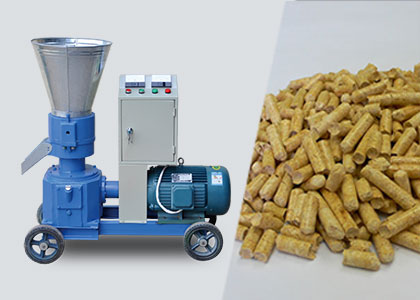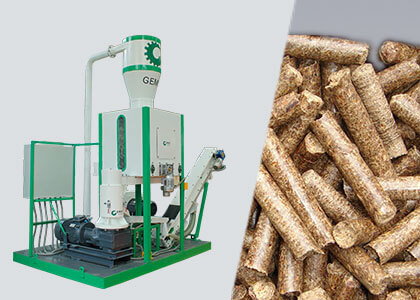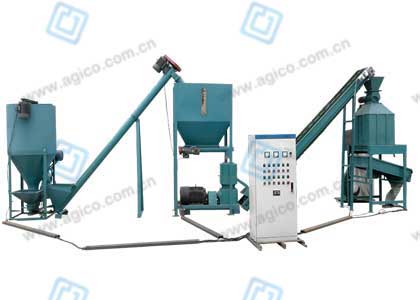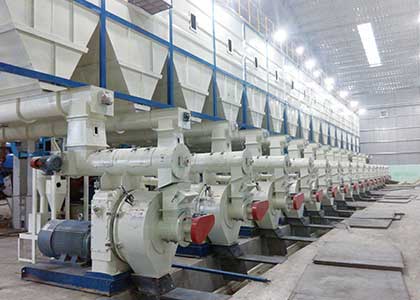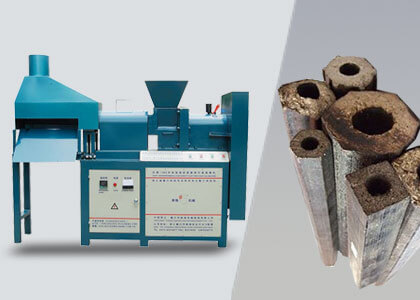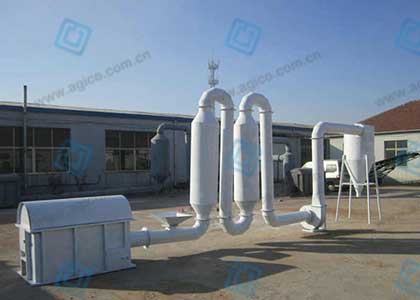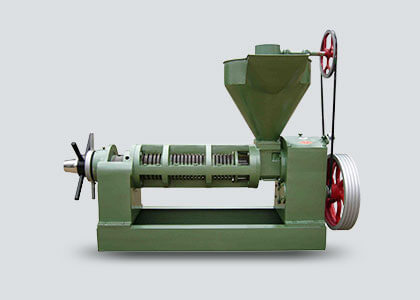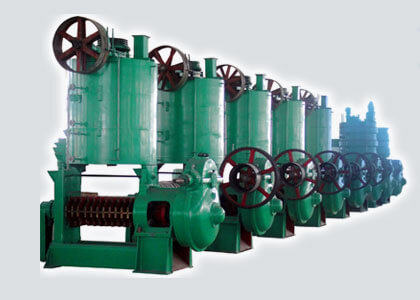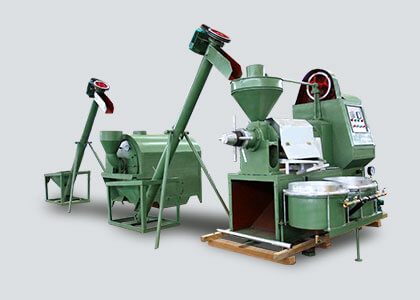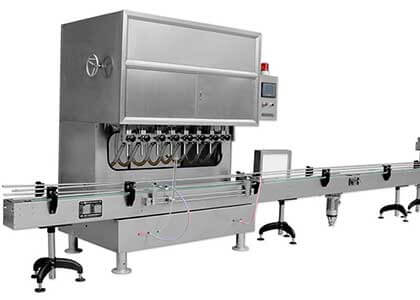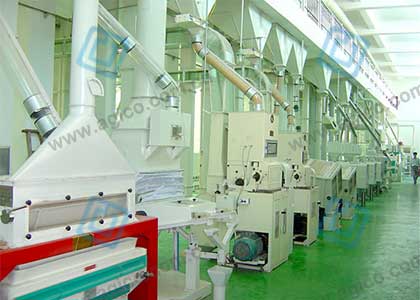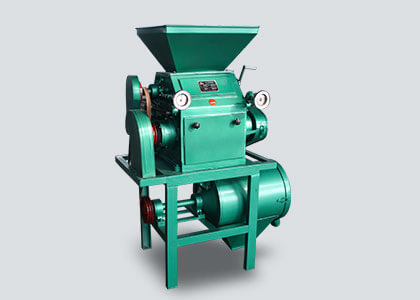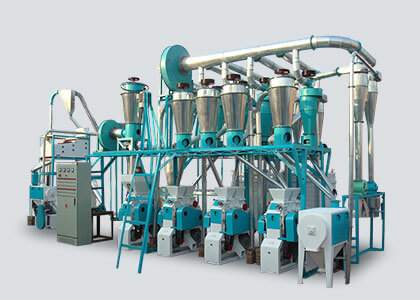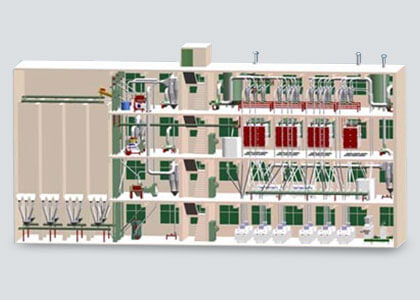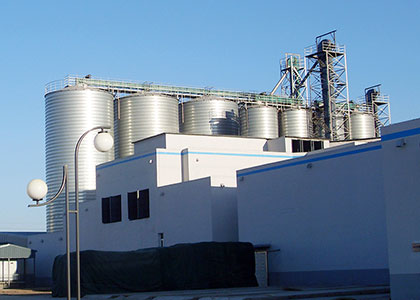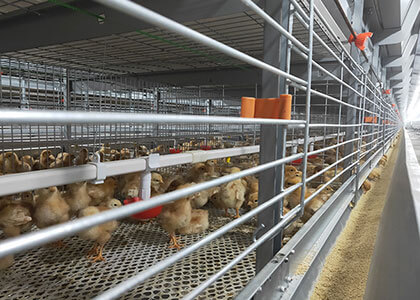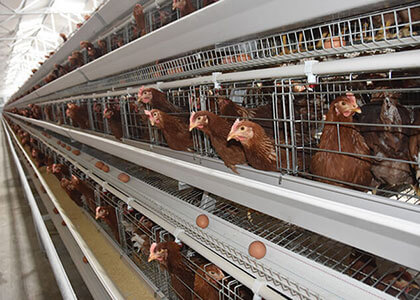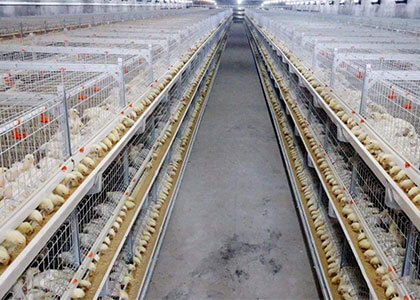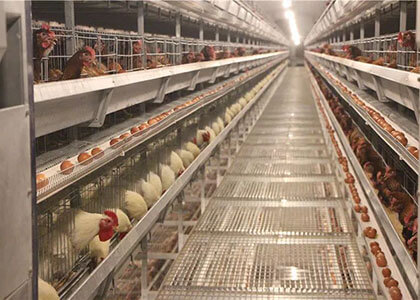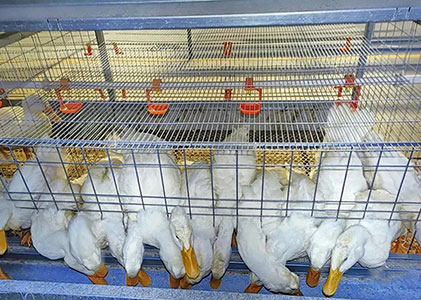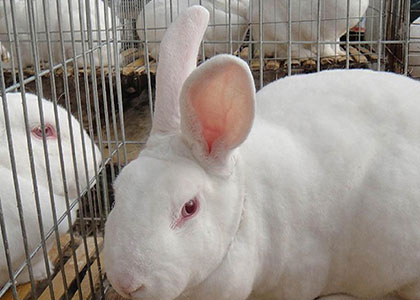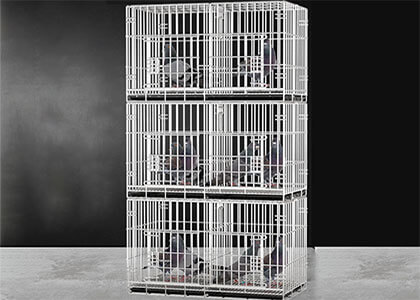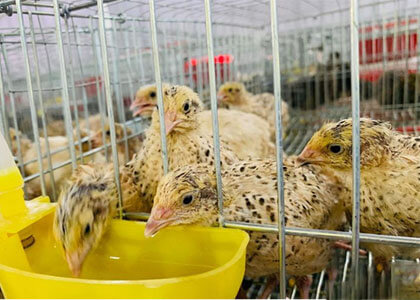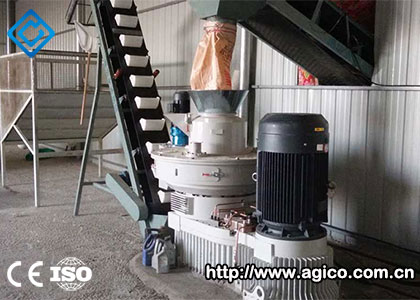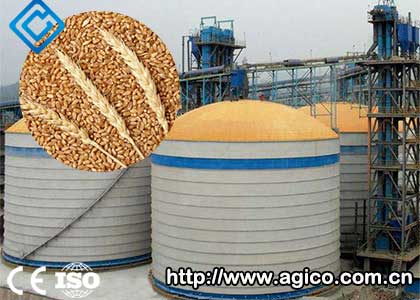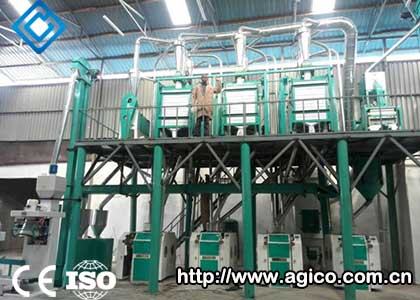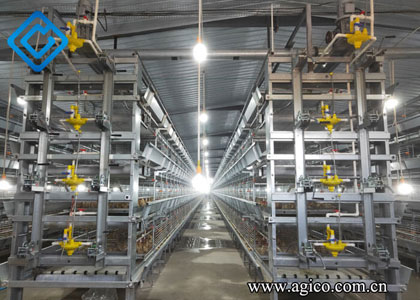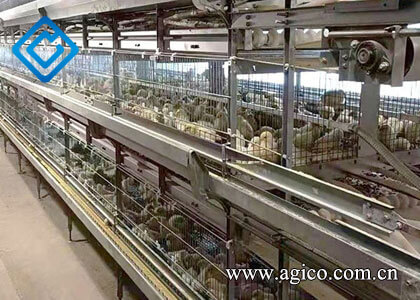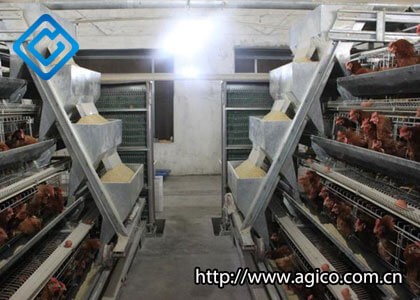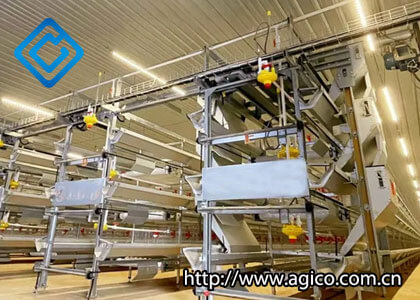What Equipment is Needed for Poultry Farming
Poultry farming is a dynamic industry that requires precision, efficiency, and attention to detail. By employing modern equipment specifically designed for poultry farming, farmers can streamline their operations and maximize their productivity. Automatic poultry farming equipment utilizes cutting-edge technologies to automate various aspects of poultry production, from housing and environmental control to feeding and watering systems, chicken cages, egg collection, and overall flock management.
Basic Automatic Poultry Farm Equipment for Poultry Farming
Chicken Cage Systems
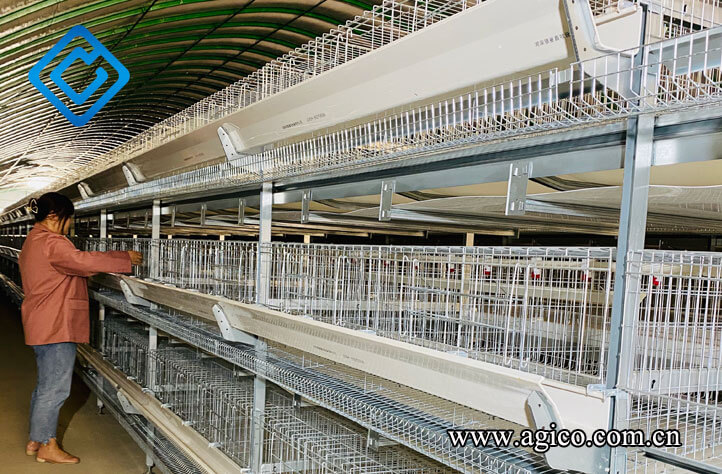
When it comes to the necessary equipment for Poultry farming, the first thing needed is the chicken cage.
- First, chicken cages provide a controlled and safe environment for chickens, ensuring their health and minimizing the risk of disease and injury. Cages give each bird with a designated space, preventing overcrowding and allowing for better monitoring and management of flocks.
- Secondly, the chicken cage system optimizes the space utilization in the poultry farm. Designed in stacks or tiers, these systems make efficient use of vertical space, maximizing the number of birds that can be accommodated in a limited area. This is especially beneficial for commercial poultry farms, where space constraints are a common challenge.
Multiple chicken cages to choose from
Professional poultry farming requires professional chicken cages. According to the type and size of chickens, professional chicken cages can be divided into layer cages, broiler cages, chick cages, breeder cages, etc. Farmers need to choose according to the type of chicken they raise.
Choosing the right chicken cage system is critical to ensuring the health and productivity of your poultry. When choosing a chicken cage, factors such as the size, material and type of the chicken cage should be carefully considered. By investing in proper and high-quality cage systems, poultry farmers can increase the efficiency and profitability of their operations while prioritizing the welfare of their birds.
Automatic Water Supply and Feeding Systems
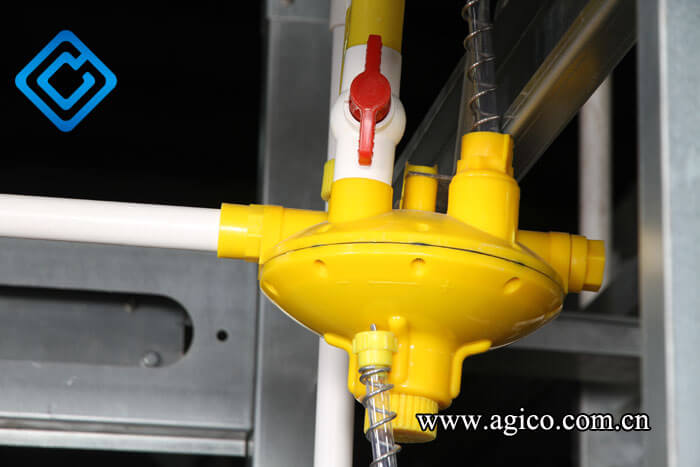
The automatic drinking water system is a device that provides a continuous water supply to chickens in chicken cages. The automatic drinking water system comprises each chicken cage equipped with a drinking cup, and the drinking cup is connected to a water delivery pipeline. Filtered drinking water is piped to individual cages. These systems utilize sensors and valves to monitor water levels and ensure birds have access to fresh and clean water at all times.
The automatic feeding system can automatically distribute an appropriate amount of feed to the feeding trough outside each chicken cage through a dedicated pipeline and feeder. The automatic feeding system delivers feed to the birds in a controlled and precise manner, with no wasted or underfed feed.
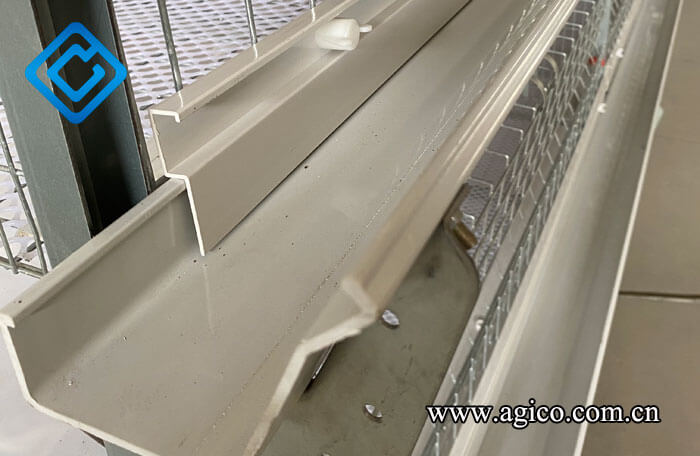
Advantages of using automatic feeder and Water dispenser in Poultry farming
- First, it ensures that the birds consistently receive the required amounts of feed and water, minimizing the risk of underfeeding or overfeeding. This precise control promotes poultry healthy growth and reduces feed waste.
- Second, automated systems eliminate the need for manual feeding and watering, thereby saving labor and time, and allowing farmers to focus on other essential tasks.
- Additionally, these systems can be programmed to deliver feed and water at specific time intervals, ensuring regulated feed schedules and promoting more efficient consumption.
Automatic Egg Collection System
Automatic egg collection systems are commonly used in large-scale laying hen houses. The automatic egg collection system adopts automated equipment, which can automatically collect the eggs produced by laying hens, and transport the eggs to the designated place uniformly.
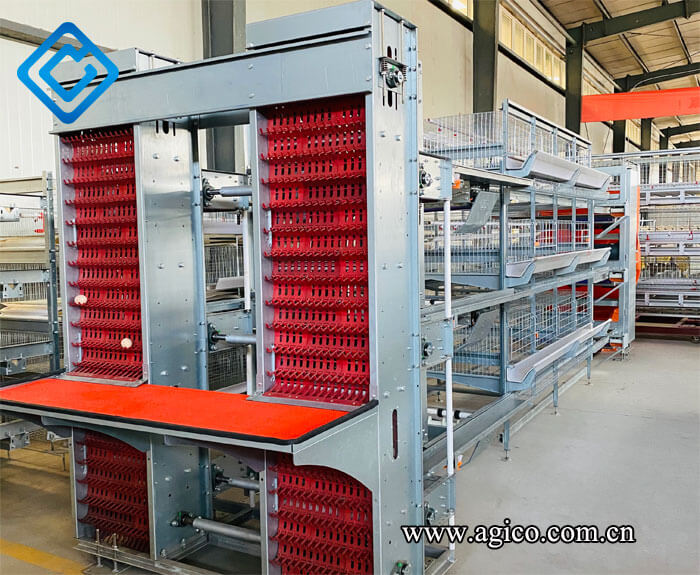
For large-scale production of laying hen houses, it is impossible to quickly collect fresh eggs by collecting eggs only manpower. Excessive personnel activities will also bring the risk of chicken infection. The automatic egg collection system relies on the conveyor belt to transport the eggs and is equipped with a buffer belt and lifting and climbing protection. The egg transportation efficiency is high, the egg breaking rate is low, and more labor costs can be saved at the same time.
The automatic egg collection system is essential breeding equipment for large and medium-sized laying hen farms.
Automatic Manure Cleaning System
Automatic manure cleaning systems are designed to efficiently remove and manage accumulated waste in poultry houses. These systems usually consist of conveyors or belts with specially designed scrapers or brushes that sweep or push the manure across or into the collection area. The device is automated, eliminating the need for manual cleaning and reducing the labor-intensive task of waste removal.
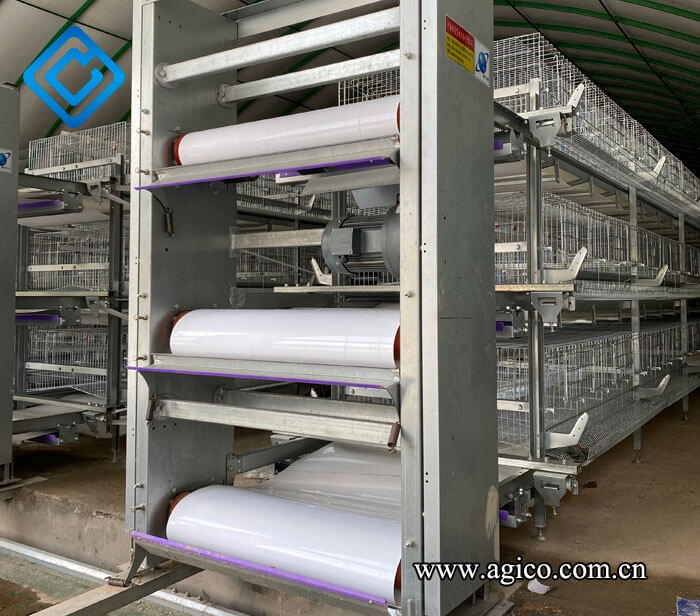
Benefits of automatic manure cleaning equipment
- Improved Hygiene: By promptly and efficiently removing manure waste, automatic cleaning systems help maintain a clean and healthy environment for poultry. This reduces the risk of disease transmission and enhances overall flock health.
- Time and Labor Savings: Manual cleaning of poultry houses can be physically demanding and time-consuming. With automatic fecal cleaning systems, the process becomes automated, reducing the need for manual labor and allowing farmers to allocate their time and resources more efficiently.
- Increased Productivity: A cleaner and more hygienic environment positively impacts the growth and development of poultry. With less time spent on waste management, farmers can focus on other essential tasks, leading to increased productivity and improved profitability.
Automatic Environmental Control Systems
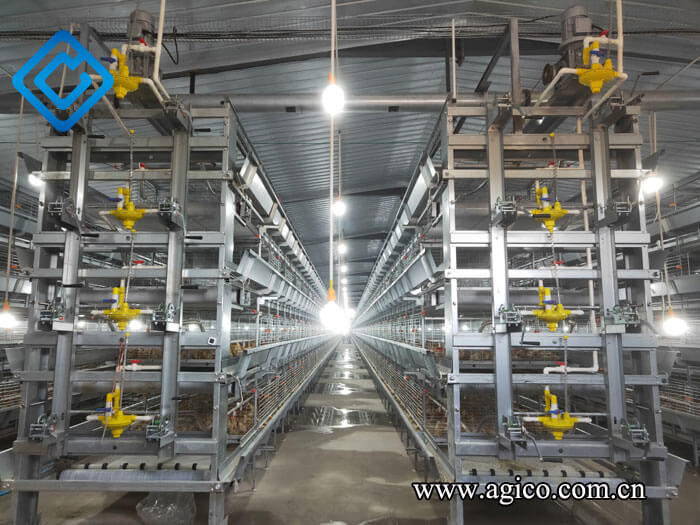
Automatic environmental control systems are designed to monitor and regulate temperature, humidity, lighting, and ventilation in poultry houses. These systems utilize sensors, controllers, and actuators to maintain optimal conditions. They offer benefits such as:
- Precision Control: Automatic systems continuously monitor environmental parameters and make real-time adjustments to maintain optimal conditions. This ensures that the birds are always provided with the best possible environment.
- Efficiency and Savings: By automating environmental control, these systems optimize resource usage, reducing energy consumption and operating costs. They also minimize manual intervention, freeing up time for other essential farm tasks.
- Enhanced Bird Health and Performance: Maintaining consistent and optimal environmental conditions supports bird health, growth, and productivity. Automatic control systems help prevent stress-related issues, reduce disease risks, and promote efficient feed conversion.
Poultry farming requires a range of essential equipment to ensure efficient and successful operations. From chicken cage systems to automatic water supply and feeding systems, each piece of equipment plays a vital role in creating a conducive environment for poultry. By investing in the right equipment, farmers can enhance productivity, reduce labor, and promote the overall welfare of the birds. It is crucial to stay updated with modern equipment and technologies to stay competitive in the poultry industry. Remember, choosing the right equipment is key to achieving optimal results and maximizing profitability in poultry farming.

